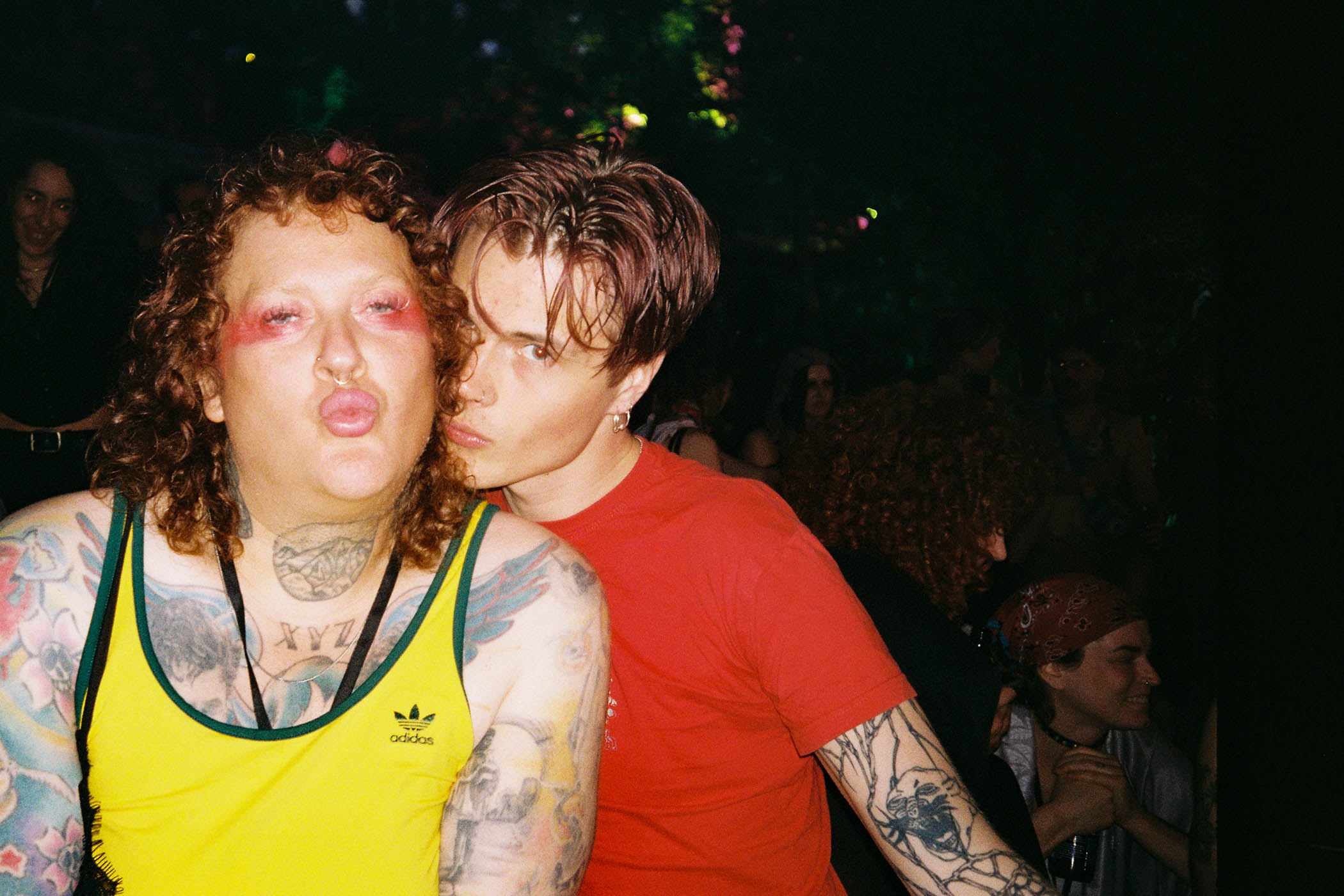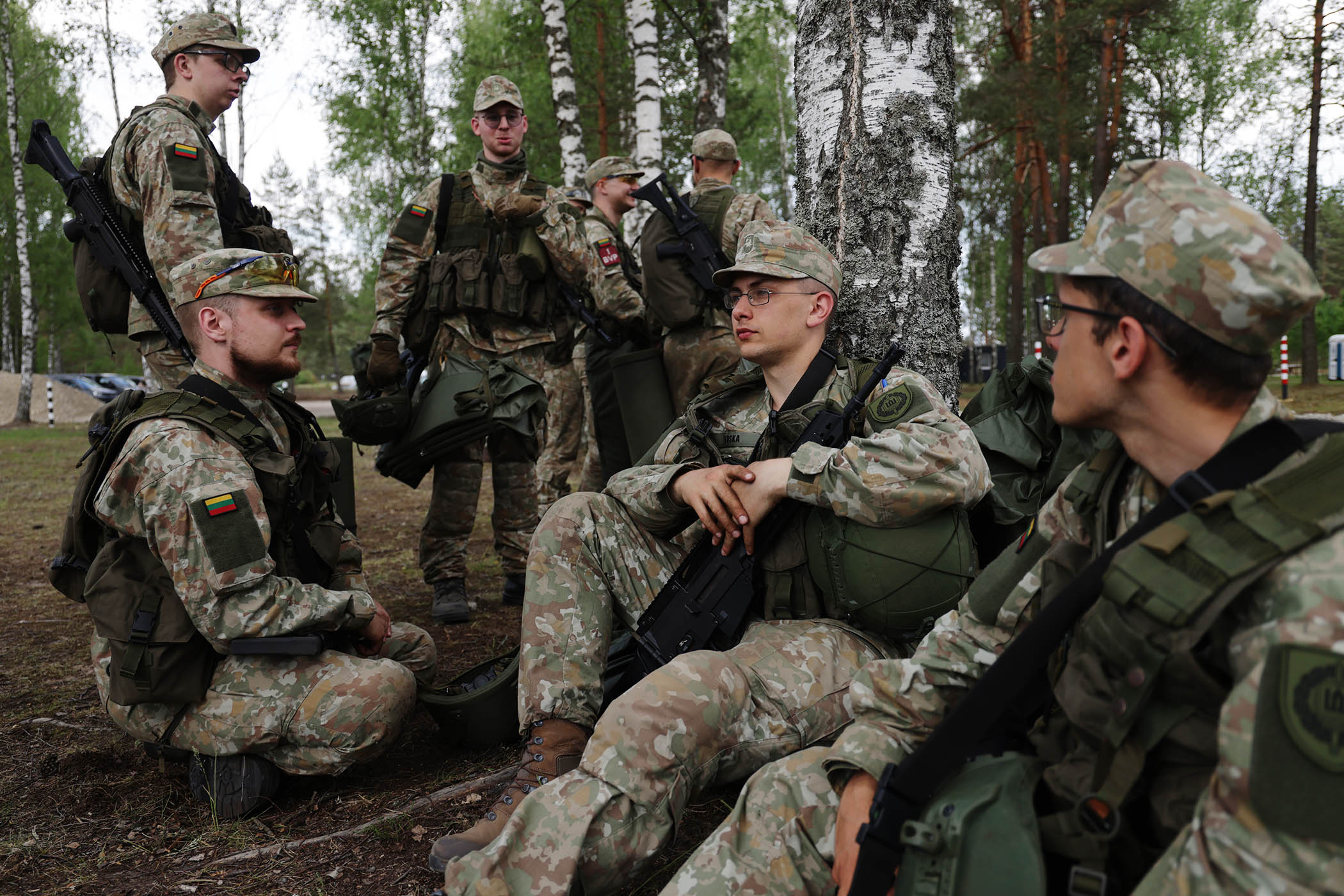At 6pm one Sunday in October, a queue was snaking down the street outside Berlin’s Aeden nightclub. Although the city is famous for its multi-day parties, most of these people weren’t on the last leg of a three-day bender. They were queuing for the “sugar free” version of one of the city’s most popular parties, Lunchbox Candy: a fully sober event with only alcohol-free drinks served at the bar.
Inside, on the main dancefloor, drag artist Bibingka led the crowd through a meditative dance workshop, encouraging them to swing their hips, make eye contact with others and “leave any last bits of anxiety outside the club”. The aim was to get people relaxed without the alcohol or drugs they might normally use as social lubricant. It appeared to work: by 8pm the dancefloor throbbed with energy, arms in the air and with bodies flailing to the bass.
Berlin holds the unofficial title of world nightlife capital. Its network of wild clubs, which grew out of the many buildings left abandoned after the fall of the wall in the early 1990s, are estimated to bring in more than €1.5bn a year in both domestic and tourist revenue. Drug consumption has always gone hand-in-hand: many venues stay open all week and some even have dedicated “consumption rooms” to stop drug-takers hogging bathroom stalls.
But the scene has been beset by hard times recently. Several well-loved venues have closed, with reasons given from rising rents to gen Z’s low alcohol consumption. Now the industry is wondering if parties such as this – a sober raving experience – might help venues survive. As well as Sugar Free, parties such as Lemonade Queers, Tendersesh and Sober Sensation have sprung up in recent years to offer drink- and drug-free dancefloors.
Sobriety is “more than just a trend”, said Marcel Weber, chair of Clubcommission Berlin. Sales of non-alcoholic beers are increasing in Germany and Weber says venues are seeing ravers partying for just one day instead of three. “We live in a time of insecurity,” he said, “and sobriety is one way for people to find stability.”
Related articles:
Adam Munnings and Stephanos Pantelas co-founded Lunchbox Candy four years ago. Inspired by the club kid scenes of 1990s New York and London, it’s a queer-centric party that encourages attendees to dress flamboyantly and combines drag shows and performance art with energetic house and techno DJ sets.
The “sugar free” concept came to them last year after realising more people were exploring sobriety.
The team tried to design a party “that’s just as exciting and engaging, and encourages people to reconnect with the roots of what a good party is”. As a club night that has a “debauched and messy” reputation, they hope the sober version prompts people to ask why they use alcohol or drugs.
“Is it because we normalise them? Or is it because we think we need them to partake in certain experiences?” said Munnings.
Pantelas sees two current trends: “I feel there’s one group of people using substances even more to try to escape what’s going on in the world. And there are others who are sobering up for the same reason.”
In the Aeden garden, Megan sipped her club-mate – a caffeinated soft drink popular in Germany – after finishing the dance workshop. From Canada but living in Berlin since 2018, she has been sober for more than four years due to health issues. “I love club culture and dancing brings me so much joy,” she said.
This was her second visit to Sugar Free. “It gives me the opportunity to connect with other people who are sober or sober-curious and still feel passionate about the culture,” she said. “Because why should we stop having fun?”
Ironically, she says this sense of connection that first made her fall in love with nightclubs is missing at some Berlin parties thanks to heavy use of ketamine, which can have a dissociative effect. “People don’t engage with each other on the dancefloor any more,” she said. “They just stare at the DJ.”
Staying sober on the dancefloor isn’t always easy for those in recovery. “Wil” (not his real name) looked down on the sparkly, sequinned crowd as he smoked a cigarillo on the club’s roof terrace. He was visiting Sugar Free with a group of friends from Narcotics Anonymous (NA), which he has been attending for 18 months.
“The last time I came to this club, I was in the middle of a psychotic episode,” he said. “Stepping in the door brought a lot of intense memories back.”
Many people in his NA group are exploring how to party sober “as nightlife is such a big part of the city – it’s the reason many of them moved here”.
He’s still weighing up whether he’ll keep doing sober nights. “You’re very dependent on the music if you’re sober,” he said. “If the music that night isn’t to your taste, there’s not much you can do.”
Weber from the club commission is excited about where the new wave of sober parties will take the industry. “Maybe Berlin can be the first city with a strong and sustainable range of sober events,” he said. “And maybe in the future, people will visit Berlin especially for this.”
Photograph by Paul Scheufler


